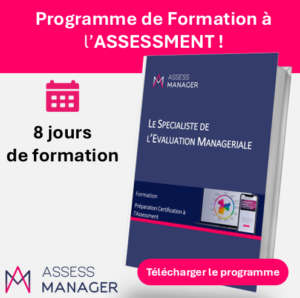
After much research focused on negative emotions such as stress and anxiety, researchers are now exploring positive emotions, particularly joy. The psychology of happiness is now defined as a human science in its own right. According to Clifton (2002), “positive psychology is a revolution in thinking because it moves us from expressing ourselves in deficit terms to expressing ourselves in positive terms”.
How can the psychology of happiness, derived from the theory of ‘flow’, be applied in the workplace to motivate teams, or to motivate ourselves?
Let’s look at the direct links with VROOM’s theory of motivation..
In this article, we look at “flow”, also known as the “optimal psychological state”, a concept that emerged in the 1970s thanks to the psychologist Mihaly Csikszentmihalyi. He is the author of the book Flow, translated into French as Vivre: la psychologie du bonheur. In it, he presents the results of his research into happiness, after interviewing people who were happy in their personal or professional lives, in an attempt to identify the conditions for happiness.
Why does Assess Manager believe this concept is important?
We are convinced that learning and surpassing oneself are two essential components of our professional and personal development. Identifying your comfort zone by analysing your 10 personality traits is what ZOOM-ER is all about.
The author explains that the only way to achieve true happiness is to alter our state of consciousness to enter flow – an enriching and optimal experience, where we are connected to ease, spontaneity, openness and productivity. Flow allows us to transform our activities into happiness. It leads us to go beyond our needs or satisfactions, to aim for a feeling of ecstasy and self-improvement.
The Assess Manager skills test enables us to identify our strengths and areas for improvement using a number of indicators, for example by asking ourselves about our relationship with creativity, our openness to change, our motivational levers, etc. We also look at the means available to us to get out of our comfort zone.
The conditions for experiencing flow :
- a balance between our skills and the challenge at hand,
- a focus on the action we are undertaking,
- an achievable goal and clear feedback,
- a feeling of control over the end result.
Certain aspects of Vroom’s theory of motivation are clearly to be found here: the notion of concentration and presence are the key differentiating points, as is feedback..
When all these characteristics are present, we are fully absorbed in the activity we are carrying out. Our concentration is intense and we are fully involved. We feel pleasure and satisfaction in performing the task on which we are concentrating. Our attention is focused on the action alone and the benefits, interests and needs we may derive from it are absent. We forget our ego and take full advantage of this experience in the present moment. This positive feeling gives us joy and well-being, deeper feelings than pleasure and its short-term effects. Flow also enables us to develop new skills, boost our self-esteem and go beyond our limits.
Flow occurs when we perceive a balance between our personal and professional skills and the challenge or task in hand. What are my skills and abilities? Where do I stand? What is my comfort zone? How can I go beyond that? How can I create challenges for myself? Am I capable of achieving this flow?
To answer these questions, we suggest you take the Assess Manager test, to assess your potential, evaluate your skills and identify your areas for progress and improvement.
Another book on the theories of happiness can be cited: Frédéric LENOIR “Du bonheur, un voyage philosophique” – the approach is also very interesting and traces the thoughts of the great philosophers in relation to happiness.

To go further with Assess Manager


